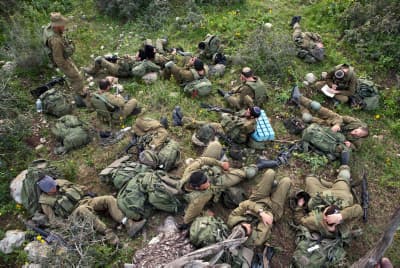IDF, Gaza, Hamas, Israel-Gaza War
Close to defeating Hamas in Gaza, IDF soldiers are battle weary after 9 grueling months of combat
IDF soldiers are exhausted, but they remain steadfast in their commitment to their goals.

As Israel's military operation in Gaza enters its ninth month, the conflict has settled into a grueling war of attrition. Recent discussions between Prime Minister Benjamin Netanyahu and four division commanders reveal a complex reality on the ground, where progress comes at a steep price, as reported by Kann News.
"We're dismantling Hamas brigades piece by piece," one commander told Netanyahu, his words a mixture of determination and fatigue. "But make no mistake, this is no quick operation. Every tunnel we destroy, every stronghold we dismantle, takes time and precision."
But beneath the surface of these tactical victories, a troubling undercurrent is emerging. The prolonged conflict is taking its toll on Israeli forces, particularly among reservists. Once motivated by a sense of duty, many now speak quietly of unequal burdens and insufficient compensation. The strain is palpable, a reminder that even the most determined forces have their limits.
In Rafah, the southernmost city of Gaza, the situation remains precarious. While Israeli officials claim significant damage to Hamas's infrastructure, Palestinian sources paint a different picture. They describe a Hamas brigade that, though battered, retains operational capability in half of its battalions. "This isn't about winning today, but surviving for tomorrow," one local source confided anonymously, suggesting a strategy of preservation rather than immediate confrontation.
As July begins, Israel is poised to transition into what military planners call "Phase C" of the war. This next stage is expected to involve a continued IDF presence along key routes in Gaza, coupled with ongoing operations. However, the specifics of this phase remain unclear, particularly as negotiations for hostage releases and talks concerning the situation in Lebanon.
The only thing we know for sure is that in this war of attrition, there are no quick victories, only hard-won inches of progress paid for in blood and tears. The true cost of this conflict, measured in lives disrupted and futures derailed, may not be fully understood for generations to come.